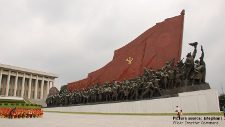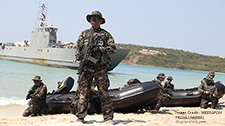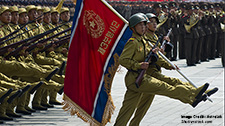Japan’s New Diplomatic Bluebook: Revised by the Russia-Ukraine War

Daisuke Akimoto
Introduction:
On April 22, Japan’s latest Diplomatic Bluebook, an annual diplomatic report published by the Japanese Ministry of Foreign Affairs (MOFA), was reported to a cabinet meeting of the Kishida administration. Based on the contents, four points are worth emphasizing with regards to Japan-Russia relations after the outbreak of the Russia-Ukraine War. First, the report officially criticized Russia’s military operations against Ukraine, stating that “Russia’s ongoing military invasion of Ukraine has brutally undermined the foundation of an international order built over the past 100 years.” Second, the report describes the Northern Territories as Japan’s “inherent territory” for the first time in 11 years. Third, the report mentioned for the first time in 19 years that the Northern Territories have “illegally been occupied” by Russia. Fourth, the report argues that Japan is currently in no position to resume diplomatic negotiations toward a Japan-Russia peace treaty.
This year’s Diplomatic Bluebook was thoroughly revised after the outbreak of the war, and it shows that Japan has readopted a “hardline stance” on the territorial dispute with Russia. Does this mean Japan has given up on a peace treaty with Russia?
Related Publications
-
Kamala Harris on North Korea: Change or Continuation?
Despite many efforts and different strategies, both previous and current U.S. administrations have been unsuccessful in preventing the Democratic People’s Republic of Korea (DPRK) from developing its nuclear and missile […]
-
‘Strategic Talks’ – A Report by Stockholm Korea Center
In June, the ISDP Korea Center launched “Strategic Talks,” an online series focusing on developments on the Korean Peninsula and regional and international security. The inaugural session on June 4, […]
-
Russia-DPRK Partnership: Implications for the West
This issue brief examines the evolving relationship between the DPRK and Russia, particularly since Russia’s invasion of Ukraine in 2022. The partnership has deepened, with North Korea supporting Russia diplomatically […]
-
Deciphering North Korea’s Military Activities
In 2024, the growing tensions on the Korean Peninsula have highlighted the unpredictability of North Korea’s military intentions. This issue brief evaluates the strategic behaviors of North Korea, particularly under […]
-
Anticipating North Korea’s Next Nuclear Test
This issue brief provides a comprehensive analysis of the anticipated technical and strategic objectives behind North Korea’s potential seventh nuclear test, along with an examination of the probable timing for […]



